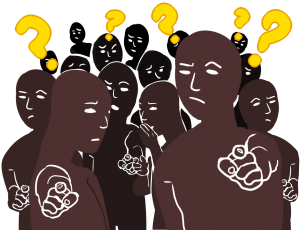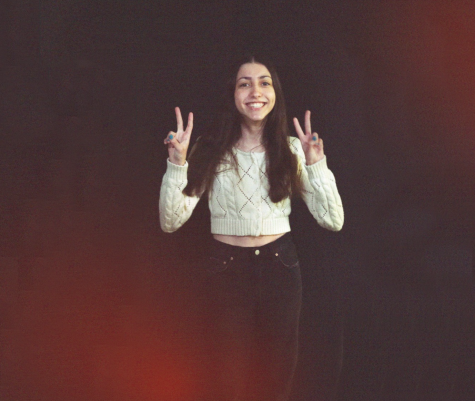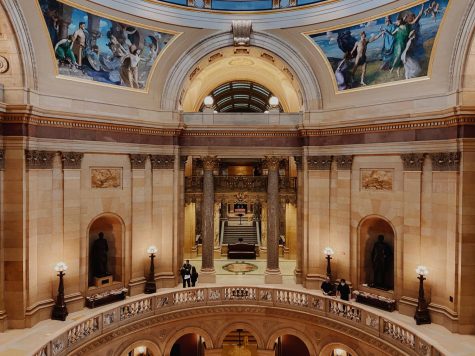Why being politically correct is a symbol of basic human respect
April 17, 2019
Political correctness has been deemed a dirty phrase in modern day politics. During the 2016 election, President Trump specifically positioned himself as an anti-politically correct candidate. We can see what has come out of that, language calling the Me Too movement “gentle,” telling police to put “thugs” harshly in the backseat of a car, and most recently according to the Cohen testimony, “He once asked me if I could name a country run by a black person that wasn’t a ‘shithole.’ This was when Barack Obama was president of the United States.” That’s just the tip of the iceberg. Trump’s degradation of political correctness is justification for saying whatever he wants to, which usually means language promoting white supremacy and violence. Competing against this type of language is political correctness and sensitivity is critical to respect and civility in our language.
Sensitivity has come into the spotlight recently when House Representative for Minnesota’s 5th district, Ilhan Omar, was criticized because of her anti-Semitic language, saying it’s “all about the benjamins baby”. This led Democrats such as House Speaker Nancy Pelosi and other leaders to denounce her actions and call for apology, which she did.
Opposers have stated that the country has become too sensitive, calling out language before realizing the actuality of what has been said. And while calling for censure of Omar seems far too extreme, actions should have consequences and sensitivity around potentially exclusionary language is essential to preserve inclusion.
Now this isn’t to say that thoughts expressed by Omar are completely wrong. After all the American Israel Public Affairs Committee, known as AIPAC, is a powerful organization, and although it doesn’t directly contribute money, it certainly has lobbying power to influence policy making. That’s not the problem with Omar’s language, the controversy was about her assumption that “dirty” money contributed by Jewish organizations is the only reason for investment in Israel, a historically anti-Semitic conclusion that has been used to justify violence. There is a difference in saying influence of PACs in democracy is bad, and saying the only reason for investment in Jewish interests is because of money.
What’s emerged out of the event? Frustrating partisan politics accusing Omar of being an anti-Semite. While the far-right slanders Omar, they blatantly ignore neo-nazism and anti-Semitic language being thrown out by President Trump and congresspeople. This administration should be a demonstration of what arises out of anti-politically correct culture. Apologies are good, but acknowledgement of exclusionary language in the first place is better.
Political correctness gets a bad rap for being a double standard, but that’s taken out of context. Maybe in the current administration it’s been tainted with calling out the other side; however, in reality it’s a culture that promotes equality and basic respect for human values. Even if it is overly sensitive, that shouldn’t be considered a bad thing.
This type of sensitivity limits out microaggressions, which are a sad commonality in our current society and people deflate their influence in shaping value to life. Politically correct language addresses this and acknowledges words as vehicles of oppression that can be altered. Microaggressions involve anything from misgendering someone, saying you don’t act like a certain race, telling someone they don’t look like they are gay, or even not talking about something at all, etc. This type of language is something that has a detrimental impact on people’s lives, not just impacting them on a day to day basis, but building up as a collective of violence.
Even if people underestimate microaggressions, they do translate into policy making. One example of this is that in 20 states and one federal statute, discussion of non-cisheteronormative identities is prevented from school curricula by law. This doesn’t just prevent LGBT students from learning and talking about their identity, but it not-so-subtly tells students that their identity is wrong without directly saying that.
It’s absolutely essential that sensitivity exists around these “small” forms of violence. Every day, certain forms of human life are devalued because they aren’t considered normal enough. Allowing intolerance towards this is being a bystander to ignorance. Why is this violence considered any less potent than violence from the political? The truth is that people justify small scale forms of violence as not having an impact, when they do.
Although political correctness attempts to limit out violence, there is a critical distinction between censorship and political correctness. Whereas censorship is created specifically to limit out free market speech, being politically correct doesn’t mean that certain speech is silenced, instead it calls for consideration of connotations of words and how they impact the subjects of them.
All this isn’t to say that people should jump on every single word used by the other side, as much of what politics is doing right now, but instead that the general public should be educated on the implications of language. Asking for that isn’t extreme, it’s basic human dignity.







